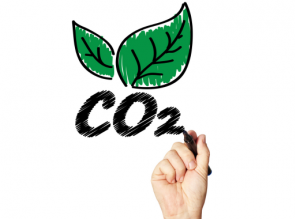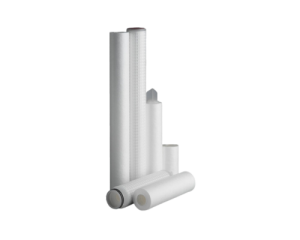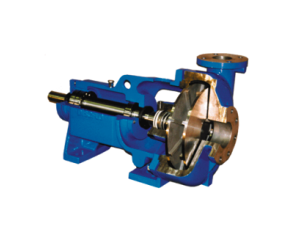Achieve Sustainable Filtration and Cut CO2 Emissions!
Amazon Filters Sustainable Polypropylene Filter Range
Amazon Filters have taken active steps towards reducing the carbon footprint of their meltblown filter production.
As well as helping to minimise their own climate impact, this move will help many of our customers to meet their sustainability goals. 
Every 30″ Meltblown filter manufactured from the renewable polypropylene will save 1kg of CO2 being released into the atmosphere.
Amazon Filters have found a way to incorporate sustainable versions of the essential polymer ‘building blocks’ we need for the manufacture of polypropylene.
At the same time, they can ensure the meltblown filters made from the material continue to underpin robust, cost-effective and high-quality filtration.
The products they are focusing on are the flagship meltblown filter ranges SupaSpun II, SupaGard, Contour and VisClear II.
Between them, these products have applications in critical liquid filtration processes in key industries such as municipal water, oil and gas, food & Beverage, chemicals and coatings, and pharmaceuticals.
Renewable feedstocks
Traditionally, monomers sourced from fossil fuels have been the base media feeding into the polymers involved in polypropylene manufacturing.
But we can now move on from this under a ‘mass balance approach’ developed by their Vienna-headquartered supply partner Borealis, a specialist developer and manufacturer of polymers.
Borealis have developed a process by which a proportion of the fossil-derived monomers can be replaced in the manufacturing mix by an identical volume of sustainable ones that are tested to ensure the same level of quality.
Their Bornewables™ polymers are made from sustainably sourced renewable feedstocks derived solely from waste and excess vegetable oils such as used cooking oil and residues from vegetable oil processing. These sources involve raw waste collected from restaurants and the food industry.
Monomers made from such bio-feedstock contribute to a ‘circular’ manufacturing process.
Because the sustainable material has taken carbon out of the environment during its lifesplan, it balances out the amount of carbon going into the environment from the fossil fuel monomers. This is what we mean by ‘mass balance’.
The approach has already been used in polypropylene manufacture by early adopters in the Netherlands, including in the production of medical face masks and other filter media.
Maintaining quality
The bio-feedstock is the same quality as the fossil feedstock and can be mixed with the conventional feedstock in production.
Tests are carried out to confirm the absence of any impurities in the sustainable material in order to guarantee the equivalent standard.
This ensures that the end user receives products of identical quality to the purely fossil-derived material but with the assurance of a reduced carbon footprint compared to conventional plastics.
The ‘mass balance’ approach is no different to using monomers sourced from fossil fuels that may originate in different locations, for example, oil from different countries that will have an inherent degree of variation.
Customers can enjoy complete confidence that the sustainable cartridges perform to exactly the same level as the previous version and so have zero effect on their production activities or quality assurance standards.
Borealis’ Bornewables manufacture is certified under ISCC PLUS, the International Sustainability and Carbon Certification system for supply chains.
This confirms that the feedstock is sustainable and traceable to its point of origin.
The certification provides an independent and globally recognised assurance that there is a credible reduction of carbon footprint.
Sustainability
Borealis say that replacing one tonne of conventional polypropylene with the sustainable material will stop 2.1 tonnes of carbon emissions.
That is equivalent to 95% of an average European household’s annual energy consumption, 20 meat-eaters going vegetarian for a month or the charging of 2,100 smartphones for a year.
In terms of filter use, the carbon saving translates to a reduction of 1 kg of Co2 emissions for every 30” meltblown filter.
We know that the correct choice of filtration equipment can help you towards sustainability targets.
That’s because customers in a wide range of process industries who are keen to decarbonise will naturally want their suppliers to share the same sense of sustainability and green values.
To help with this, a life cycle assessment study has been conducted on Amazon’s sustainable polypropylene filters in accordance with the ISO 14040 and 14044:2006 standards to verify carbon reductions.
Amazon Filters have long invested in technical improvements to ensure their products optimise performance and last longer. But their partnership with Borealis takes this a step further.
For more information and to find out how ESI and Amazon Filters can help with your sustainable filter requirements, contact us via our form or webchat!
Plastic Reduction on Filter Packaging
Amazon Filters are committed to reducing waste for our customers. They are pleased to announce that the introduction of the sustainable polypropylene in Spring 2024 will also be accompanied by a reduction in the amount of HPDE plastic used in their packaging.
Details of Change
Following extensive trials with a number of customers they have qualified the use of a thinner gauge high density polyethylene (HDPE) bag. This initiative actually halves the amount of plastic used in the bag. In terms of the environment, this will reduce consumption of HDPE by approximately 10 tonnes per year saving nearly 4.5 tonnes of CO2.
Important: This change does not apply to the large format 14,15 Series or the SupaPore range of filters. These will continue to use the heavier gauge material.
Above information from Amazon Filters

